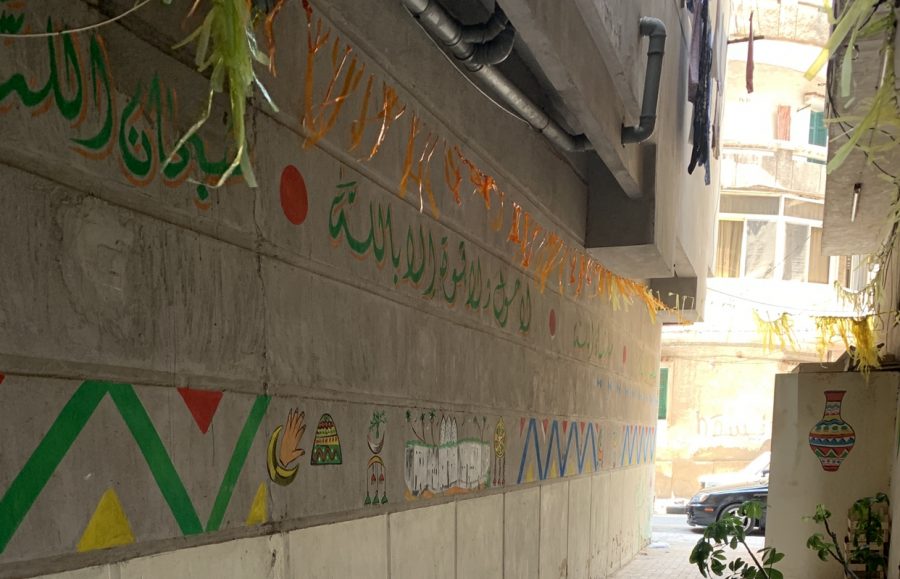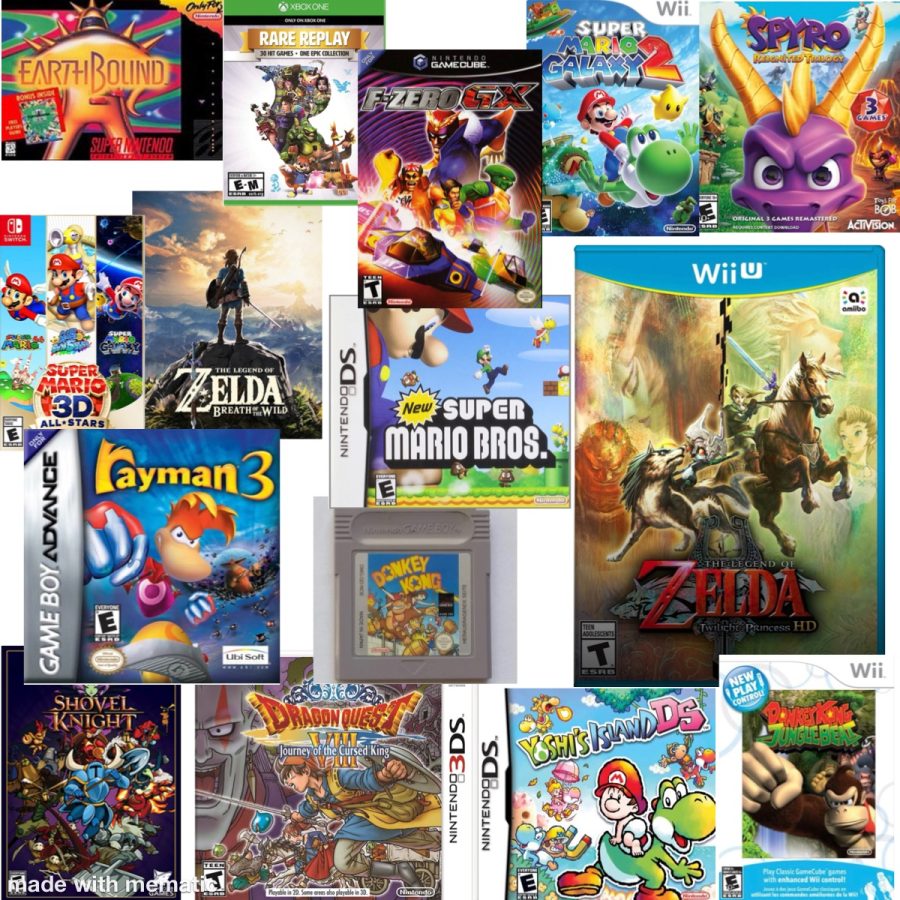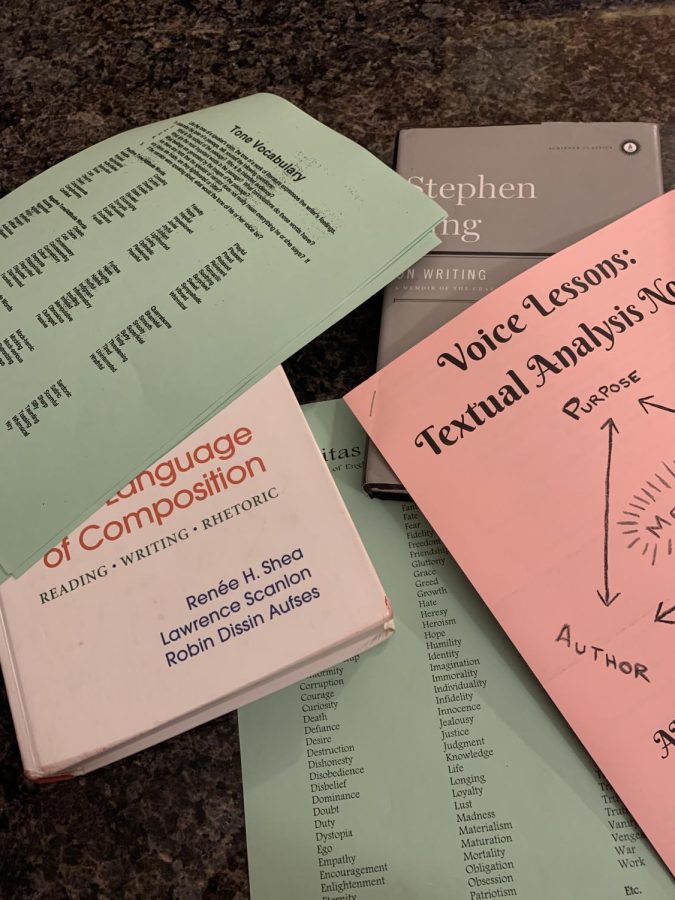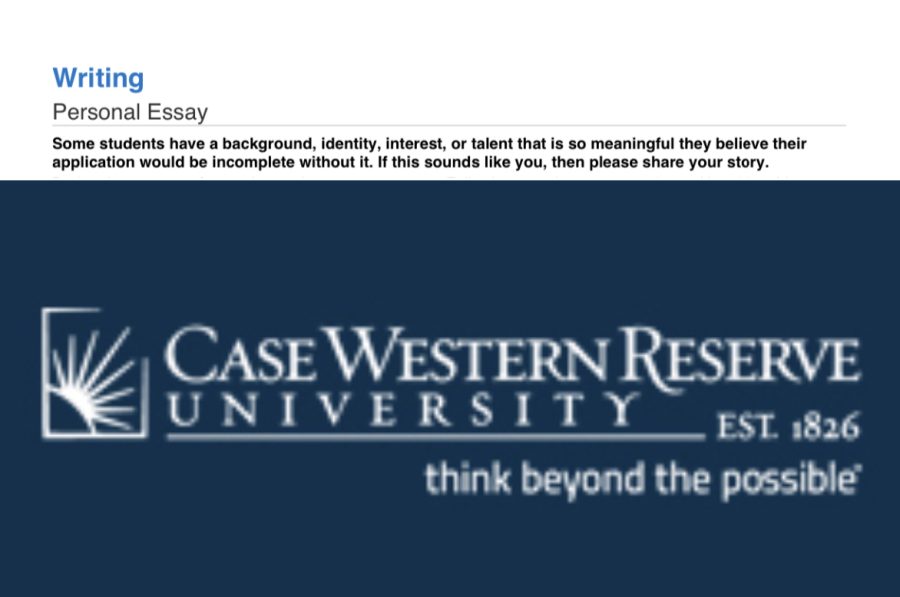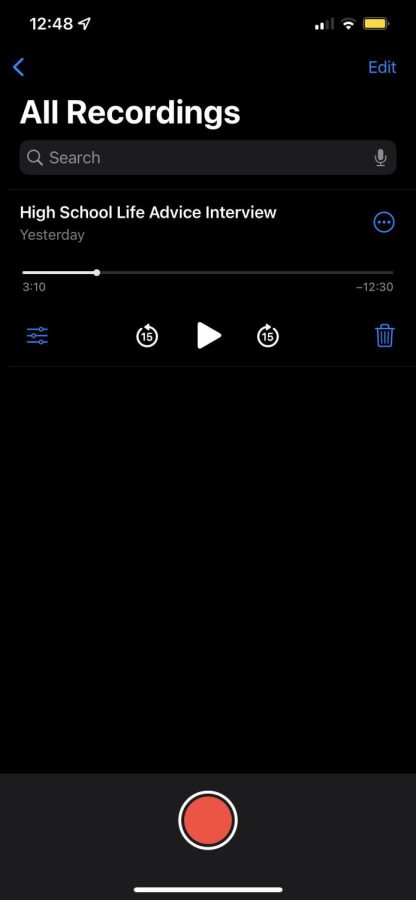Eating gourmet seafood, swimming in beautiful beaches, and playing on my Nintendo Switch every other hour were the highlights of my trip to Egypt last summer. Moreover, I cannot go there without seeing my relatives. However, this was where I struggled during the trip. Lacking proper Arabic education my entire life, I sometimes wonder if the language barrier between me and my relatives will ever be broken.
Although I have a couple of Egyptian relatives who are fluent in English, the majority can only speak and understand a few words. This was demonstrated when my aunt and her two young children came over to visit. Her son’s English had improved since the last time I saw him. However, I still couldn’t have a conversation with him without having a family member translate or awkwardly emphasize each word I spoke. As a result, instead of asking him how his life has been since the last time I saw him, I simply gestured him to my Nintendo Switch so we could play Mario Kart 8 Deluxe. In spite of me saying “you’ll do better next time” after races and my aunt’s son called himself a “noob” several times, we mostly played in silence. Regarding my aunt’s daughter, I spoke to her even less. In fact, all I did was greet her with “ah-lan” (hello). I even had trouble speaking to my aunt herself, as my mother had to translate every sentence we exchanged with one another.
Another example of this language barrier occurred when my father’s side of the family came over to visit. One day, when my father’s cousin came over to visit, I struggled to make conversation with him. Rather than exchanging meaningful words with me, he only asked me simple questions such as “Are you doing good?” while speaking in an uncomfortable, worried tone. Also, when my father’s uncles and aunts came over, I couldn’t contribute to their conversations. While they were all seated and conversing with one another, I sat there on my phone, unable to process the words coming out of their mouths. In addition, when I visited one of my grandmother’s sisters and her husband a few days later, my father had to translate everything they were saying to me. Besides basic English, the only Arabic I was able to successfully exchange with my father’s side of the family was “ah-lan,” “forsa-sa’eeda” (it has been a pleasure), and “ma’a-salama” (bye).
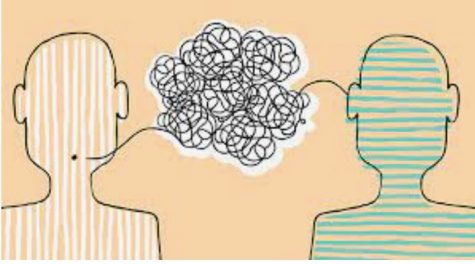
Perhaps the most damning example of this language barrier occurred throughout the majority of the trip, in which my maternal grandmother stayed with us. I have known my maternal grandmother ever since I was little, and have forged a strong, nonverbal bond with her as a result. However, when she stayed with me and my family during the trip, I couldn’t communicate with her besides the little Arabic I knew. One time, when she tried to ask me if I liked her pants, I couldn’t understand her until she pinched her pants and asked, “You like?” In addition, like many of my other Egyptian relatives, my parents had to translate in order for us to understand what we were saying to each other. Although I already have a good relationship with my maternal grandmother, the language barrier between us has prevented that relationship from growing.
Ever since I was a toddler, I have tried and failed to learn Arabic many times. My first experience with learning Arabic was in Sunday school, in which I learned the alphabet. A few months later, however, I quit Sunday school and forgot my Arabic basics as a result. It wasn’t until intermediate school that I attended Sunday school again and relearned the Arabic alphabet, learning accents this time as well. In addition, sometime between Sunday school when I was a toddler and Sunday school when I was a tween, my maternal grandmother came over to America to stay with us for the summer. Despite my current linguistic struggles with her, she managed to give me Arabic vocabulary lessons on a regular basis until she left.
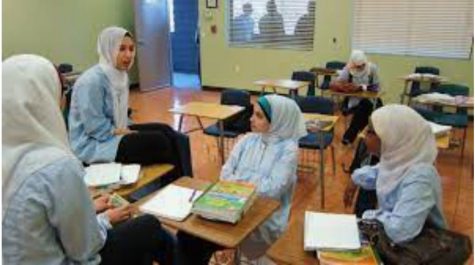
Nevertheless, I quit Sunday school again during intermediate school. While I retained a good understanding of the alphabet and accents, I forgot most of the vocabulary my grandmother had taught me.
My father searched for a private Arabic teacher for me and my sister all over Northeast-Ohio, but there was none he could find. As a result, I took matters into my own hands and purchased an Arabic vocabulary book.
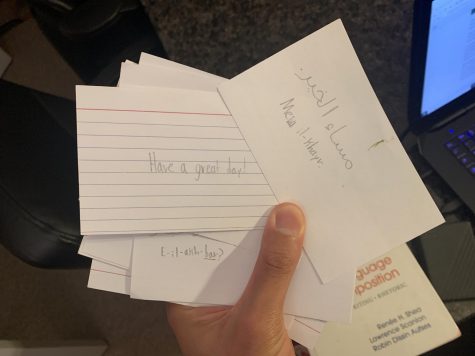
– A handful of the flashcards I created in order to study Arabic on my own
Creating flashcards based on the book, I was off to a good start when I began studying Arabic on my own. My father, however, claimed they were ineffective and offered me Arabic lessons. Hoping to enhance my Arabic skills, I accepted. Even so, my father failed to give me lessons on a weekly basis, and I was left to starve in the vast jungle of language once again.
Being busy with school, extracurriculars, and my vast video game library, I still haven’t resumed studying Arabic on my own. However, to communicate with my relatives in the future, I know that I must achieve Arabic fluency. If I am to attain intimate relationships with my relatives, I am going to have to untangle the web of Arabic words and phrases that is preventing me from understanding my own family.

